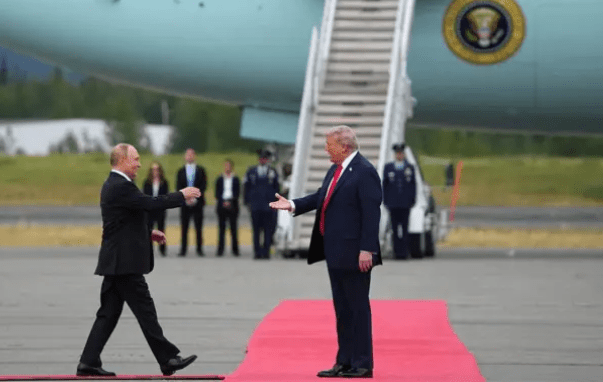I. Missiles strike Kyiv; Putin pours cold water on 'peace'.
Just two weeks after Trump and Putin sat down in Alaska to discuss peace, Russia turned around and made a big move. 600 drones accompanied by missiles swarmed towards Ukraine like locusts, with nearly 600 striking Kyiv. This is not a misfire; it is aimed at extinguishing the hope for peace—The glass ceiling of the EU office was shattered, residential buildings collapsed, and even a 2-year-old child couldn't escape. Von der Leyen angrily stated: 'The missiles landed just 50 meters from the EU building; two strikes within 20 seconds!' Clearly telling the world: My fist is strong; don't expect me to back down.

II. Civilians have become bargaining chips; Russian-style 'precision strikes' are too hypocritical.
The Russian Ministry of Defense stubbornly claims to 'only strike military targets', but the photos from the scene are undeniable: residential areas turned to ruins, EU offices in disarray, and the British Council also affected. The U.S. representative in Ukraine, Kellogg, couldn't hold back: 'They are not bombing armies, they are bombing civilian communities! They even dare to hit diplomatic institutions.' This kind of 'collateral damage' tactic is used so often that who still believes it? It is clearly taking civilians hostage to force Ukraine to concede at the negotiation table.
III. Zelensky grits his teeth to retaliate, but Western support is changing.
Zelensky is genuinely furious this time: 'Russia chose missiles, not the negotiation table!'
While he is seeking security guarantees from Turkey, he is simultaneously sending drones to bomb two Russian oil refineries—'You cut off my lifeline, so I will let you taste the oil shortage.' But honestly, the Western support has become unstable: Trump says he is 'heartbroken', but his actual response is lukewarm; the EU calls for increased sanctions, yet after 19 rounds, there has been no significant harm to Russia. Ukraine is like a chip pushed onto the gambling table; the U.S. and Europe want to minimize losses, while Russia wants to take it all.
IV. Personal opinion: Is this war coming to an end soon?
1. Putin's recent bombings have exposed the true intentions of the Russian military:
To cripple Ukraine's logistics, specifically targeting factories and warehouses, leaving the Ukrainian army with no guns or ammunition (refer to the March attack on Sumy);
2. Testing the Western limits: If they dare to hit even the EU building, it is a gamble that Europe won't truly retaliate;
3. Sending a warning to Trump: I act right after our discussions; let’s see how you push your 'peace plan'.
But Ukraine isn't waiting to be attacked. Reports from the front indicate that the Ukrainian army has pushed back Russian forces by ten kilometers in the Sumy direction—The bloodier the battlefield, the more distant peace talks become. Now both sides are betting on their last breath: Ukraine hopes for F-16s and Patriot missiles to save them, while Russia waits for Western aid to be cut off.
To be honest: A peace agreement? Don't expect it in the short term. Look at the EU's 300 billion frozen Russian assets; it's been two years and still nothing; Trump is focused on the elections and doesn't want to wade into murky waters. The ones suffering the most are the ordinary people—on Kyiv's Day of Mourning, the flag was lowered and then raised again, but who knows when the next air raid siren will sound?
What does the future hold for the cryptocurrency circle?
Short-term fluctuations are inevitable: As long as the conflict continues, cryptocurrencies will still be treated as 'hedging tools' or 'speculative tools' for trading.
In the long term, look at the technology: Blockchain can reduce costs and increase transparency; that is its true value.
Be cautious and don't get carried away: Don't believe in 'getting rich overnight'; after Wall Street bigwigs inflate prices, it's often the retail investors who get harvested.
So, missiles are flying, and the cryptocurrency circle is celebrating; it appears to be 'hedging', but it is actually the result of a traditional financial system's credibility crisis plus capital speculation.
Blockchain is a good technology, but trading cryptocurrencies requires caution—Don't forget, when the big players are raking in profits, the small retail investors may have already become 'chives'.
If you want to delve deep into the cryptocurrency circle but can't find a clue, and you want to quickly get started and understand the information gap, click on my avatar to follow me for first-hand information and in-depth analysis!#美国宏观经济数据上链 $BTC

